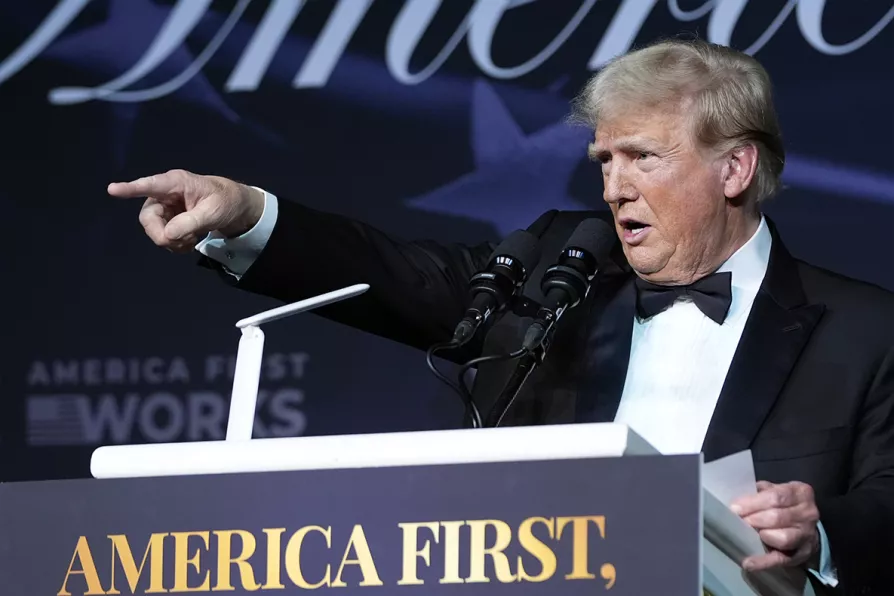
 US President-elect Donald Trump speaks during an America First Policy Institute gala at his Mar-a-Lago estate, in Palm Beach, Florida, November 14, 2024
US President-elect Donald Trump speaks during an America First Policy Institute gala at his Mar-a-Lago estate, in Palm Beach, Florida, November 14, 2024
PUNDITS are busy sifting US President-elect Donald Trump’s nominations for key roles in his administration for signs as to how he will approach world politics, dividing his picks into “America first” hawks and neocon uber-hawks.
They might be better looking at the factors driving US foreign policy, which turn first of all into the weakening power of US imperialism and its efforts to maintain the global hegemony it secured at the end of the cold war.
One Achilles heel is the position of the dollar as effectively the world’s reserve currency. It sits alongside the strength of the US’s hypertrophied military as one of the two pillars of US global dominance.

Washington’s tariff policies become explicable in light of the US economy’s relative decline and the astonishing rise of China, argues MICHAEL BURKE

The US president’s universal tariffs mirror the disastrous Smoot-Hawley Act that triggered retaliatory measures, collapsed international trade, fuelled political extremism — and led to world war, warns Dr DYLAN MURPHY

Trump’s economic adviser has exposed the actual strategy: forcing other countries to provide financial support for US hegemony











